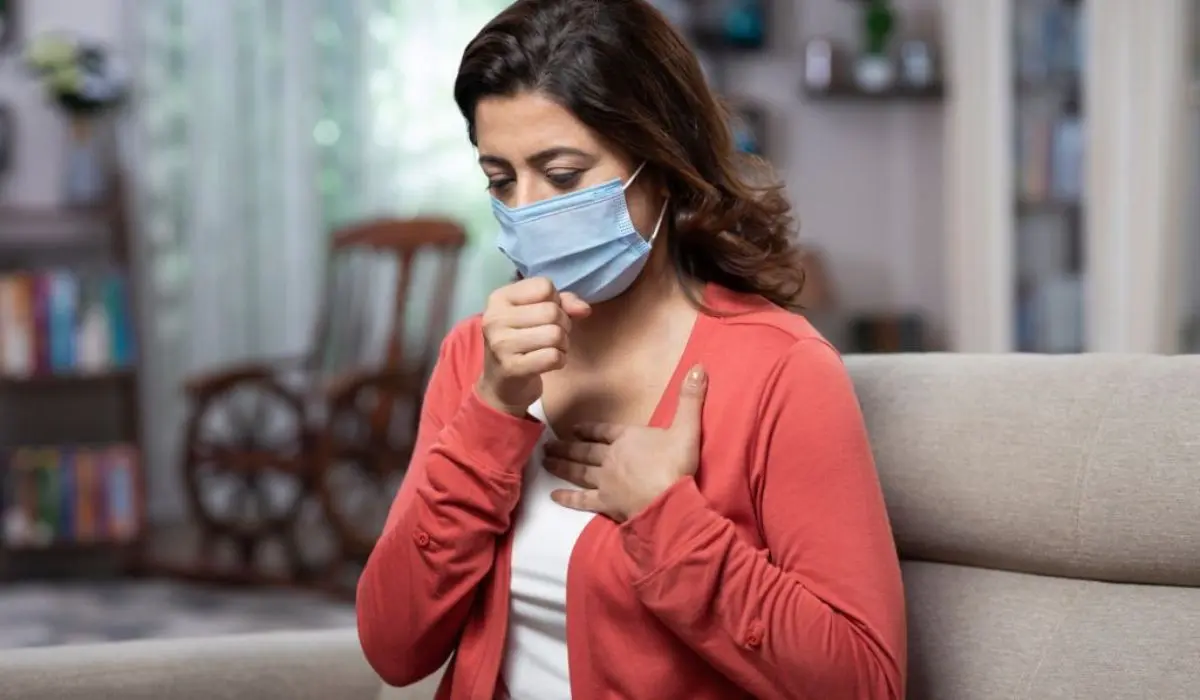Health
Signs Of Unhealthy Lungs And What to Do About Them?

Healthy lungs are essential for a good quality of life. But how can we know if they are in top shape? Signs can tell us, and paying attention to them can help detect any issues early on.
A persistent cough is a common sign of unhealthy lungs. If you find yourself coughing often, especially for over a few weeks, it may be time to get your respiratory system checked. Shortness of breath is another sign of lung issues. If you can’t seem to catch your breath or have difficulty breathing, you should get your lungs checked.
Additionally, keep an eye out for changes in the color or consistency of your phlegm. Too much phlegm or the presence of blood can be a warning sign of something wrong. Chest pain or tightness should also not be ignored.
Signs Of Unhealthy Lungs

Our lungs are vital for us to stay alive and healthy. There are signs to tell when our lungs aren’t doing great. One common symptom is shortness of breath. Unhealthy lungs have a hard time getting enough oxygen, making it hard to breathe.
Coughing, which won’t go away, can be a sign of bronchitis or asthma. Wheezing, which sounds like whistling when inhaling, is also a clue of lung issues.
Frequent respiratory infections are a sign of weakened lungs. Our lungs usually protect us, but if they’re struggling, we’re more likely to get sick.
Unexplained weight loss could also be linked to unhealthy lungs. Poor lung function can lead to less appetite and trouble absorbing nutrients.
Chest pain or tightness is something to pay attention to as it may be connected to lung issues. Chest pain can be mild or really sharp.
Smoking is a nasty habit that even your lungs can’t handle.
Causes of lung problems
Importance of lung health
Breathing comes so naturally to us that we often take our lung health for granted. But, the truth is, our lungs are essential for keeping us alive and well. They supply oxygen to our blood and remove carbon dioxide, helping our cells work correctly. Keeping our lungs healthy should be a priority.
When our lungs don’t work well, it can be bad news for our overall well-being. Poor lung health can result in shortness of breath, coughing, wheezing, and even respiratory infections. It also affects our ability to exercise and engage in physical activities. In severe cases, it can lead to chronic diseases such as asthma, COPD, or lung cancer.
So how do we keep our lungs healthy? Avoid smoking. If you’re a smoker, quitting is key. Smoking damages the air sacs in your lungs and reduces their elasticity, making it harder to breathe. Also, avoid exposure to secondhand smoke and other pollutants like air pollution.
Regular exercise is important for good lung health. It increases oxygen intake and strengthens respiratory muscles. Aerobic exercises like running or swimming are effective.
Also, keeping your indoor environment clean is vital. Dust mites, pet dander, mold spores, and other allergens can cause respiratory issues or worsen allergies or asthma. Vacuuming carpets, dusting surfaces, and using air purifiers or filters help reduce these irritants.
Finally, deep breathing techniques are beneficial. These techniques, such as pursed-lip breathing or belly breathing, can expand lung capacity. Practicing them regularly strengthens the diaphragm muscle and increases oxygen intake. In short, breathing properly is the key to healthy lungs!
Tips for maintaining healthy lungs
For healthy lungs, there are key tips to follow. These will help keep your lungs functioning optimally and reduce the risk of respiratory problems. Here are five tips:
Regular check-ups with doctors are important too. Staying proactive and following these tips promotes better lung health. Prioritize lung health and safeguard against future respiratory issues. Start taking care of your lungs now for a better tomorrow!
Conclusion
We’ve discussed signs that tell us how healthy our lungs are. Taking these signs seriously is important, as they might point to serious health problems. More unique factors to look out for are chest pain when breathing/coughing, and the color/consistency of mucus when coughing. For instance, yellow/green mucus or coughing up blood could signal an infection or lung disease.
To keep our lungs healthy, practice good hygiene habits and exercise to strengthen respiratory muscles. If you have any persistent or concerning symptoms, seek medical advice. Early detection and treatment can make a big difference. Let’s take care of our lungs – they’re vital for our well-being.
